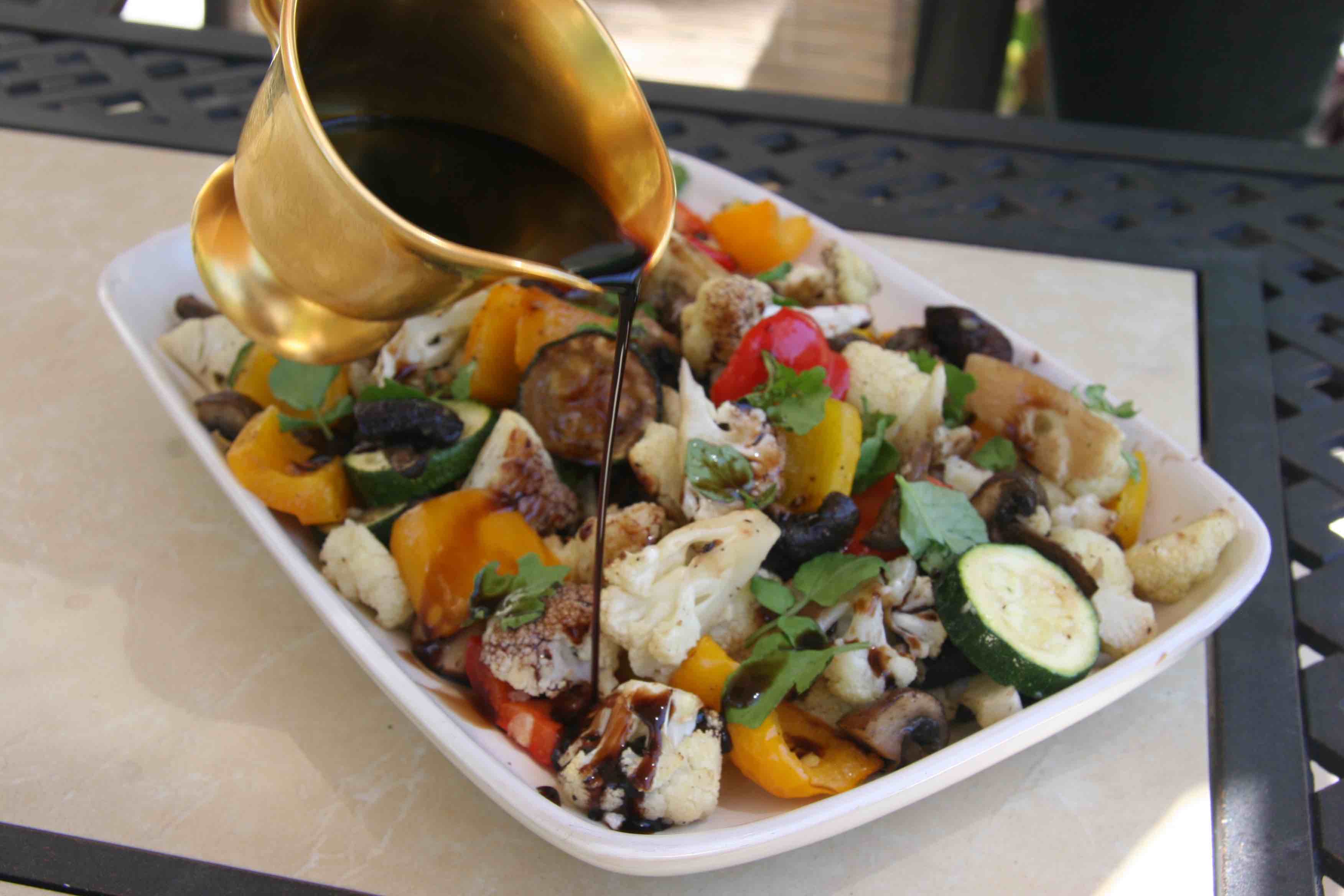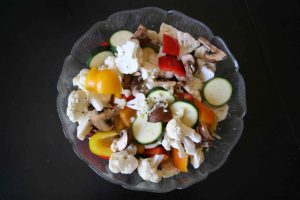With summer in full swing and July 4th right around the corner, now’s the perfect time for grilling. Although grilling is a great way to add a smoky flavor to food, there are some downsides to this cooking method. Barbecue grills are mostly used to cook meat, and the high heat and smoke can cause harmful substances to form in these foods. Carcinogens and compounds called heterocyclic amines (HCAs) and polycyclic aromatic hydrocarbons (PAHs) formed during grilling may increase your risk of cancer.
For tips to minimize the risks of grilling, follow AICR’s guide to healthy grilling. Even more importantly than how you cook your food, I like to focus instead on what foods to eat more of. Grilling vegetables does not produce HCAs, and eating more plant-based foods will actually help lower your risk of cancer.
 This recipe for grilled vegetables is simple, quick and packed full of flavor. The grill adds a nice charred flavor to the dish that balances well with the mild sweetness from the balsamic reduction.
This recipe for grilled vegetables is simple, quick and packed full of flavor. The grill adds a nice charred flavor to the dish that balances well with the mild sweetness from the balsamic reduction.
Start by making the reduction, as it will thicken more if you leave time for it to cool a bit. Balsamic reductions (or glazes) — see below for recipe — are sometimes made with added sugar, but you can keep it healthier and achieve the sweetness by making your own using only vinegar. The key is being patient and stirring regularly until the vinegar has reduced by one-half to three-fourths of the original amount.
While the vinegar is simmering you can start on the vegetables. It’s important to cut the veggies into similar sized pieces so they cook uniformly. Once your veggies are cut, coat them with the olive oil, salt and pepper in a large mixing bowl. The heart-healthy fat in olive oil enhances your body’s ability to absorb fat soluble vitamins found in vegetables, like vitamins A and D.
I like to use seasonal vegetables whenever possible for the freshest, most flavorful (and cost-effective) options. I live in California, and June is prime time here for peppers, cauliflower, summer squash and mushrooms. Feel free to play around with the vegetables you use in this recipe depending  on what’s in season where you live.
on what’s in season where you live.
You can use a grill basket to cook your vegetables, or roast them in the oven if you don’t have a grill. The vegetables only take 15 minutes, and are easy to finish off with a drizzle of your balsamic reduction and chopped fresh basil. These simple garnishes also make the dish pop with added color.
If you have leftovers, you can add these veggies to a salad with chickpeas or chicken for a healthy lunch during the week. They also work well in a whole wheat wrap with a spread of hummus.
Here’s the full recipe for Summer Grilled Balsamic Vegetables. What’s your favorite grilled vegetable recipe?
Balsamic Reduction:
Ingredients: 1 cup balsamic vinegar
Bring the balsamic vinegar to a boil in a small sauce pan. Reduce the heat to medium/low and let the vinegar simmer for 10-15 minutes, stirring occasionally. The reduction is done when the vinegar has thickened enough to lightly coat the spoon. Let the balsamic glaze cool (at room temperature or in the fridge); it will continue to thicken as it cools. When the vegetables are done cooking, drizzle the balsamic reduction over the roasted veggies and garnish with chopped fresh basil.
Sonja Goedkoop, MSPH, RD, is the lead registered dietitian at Zesty, Inc. She is passionate about helping others improve their health through diet and physical activity and believes eating nutritious food should be easy and taste great. You can follow her on Twitter @SonjaGoedkoopRD.





